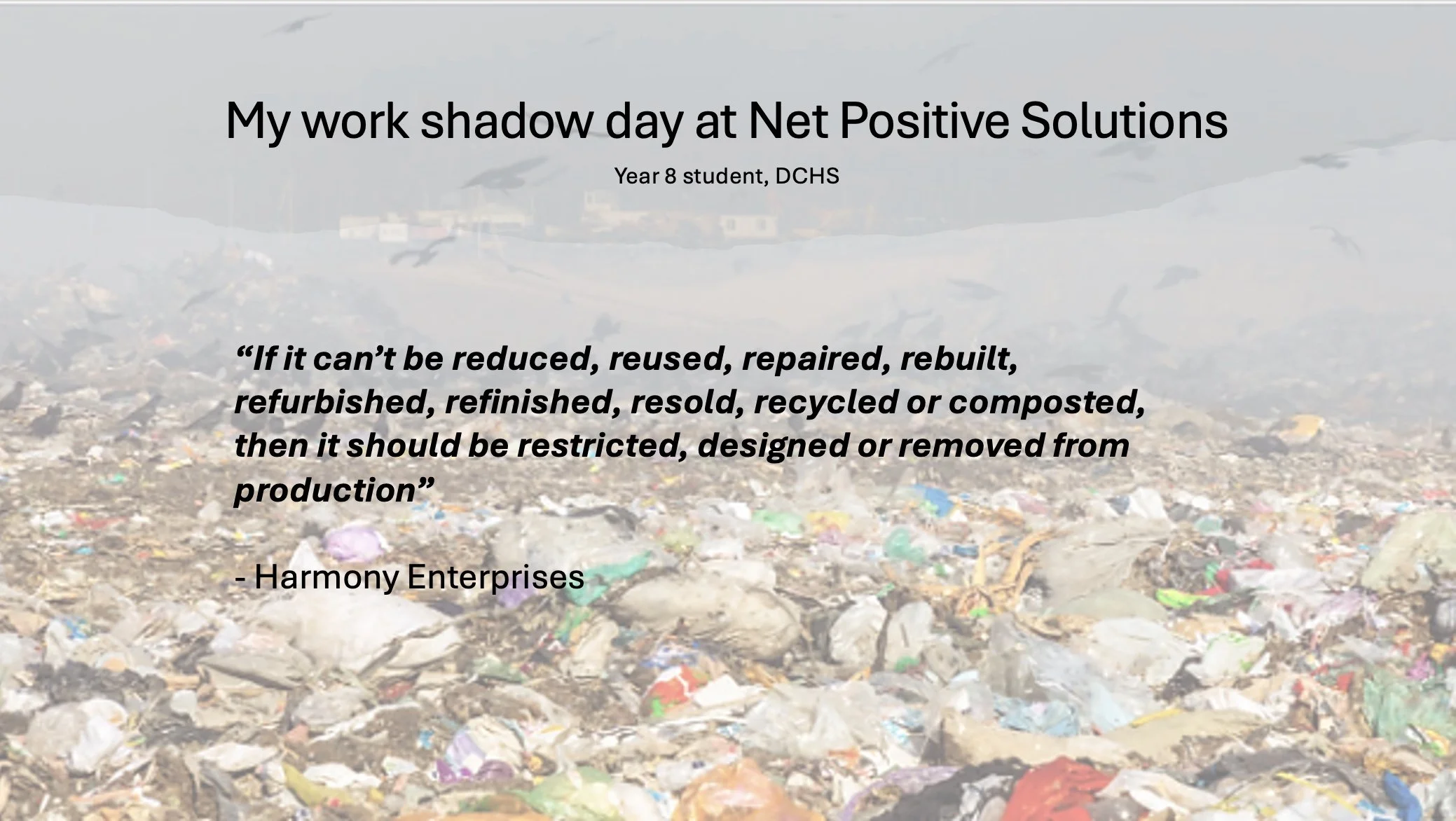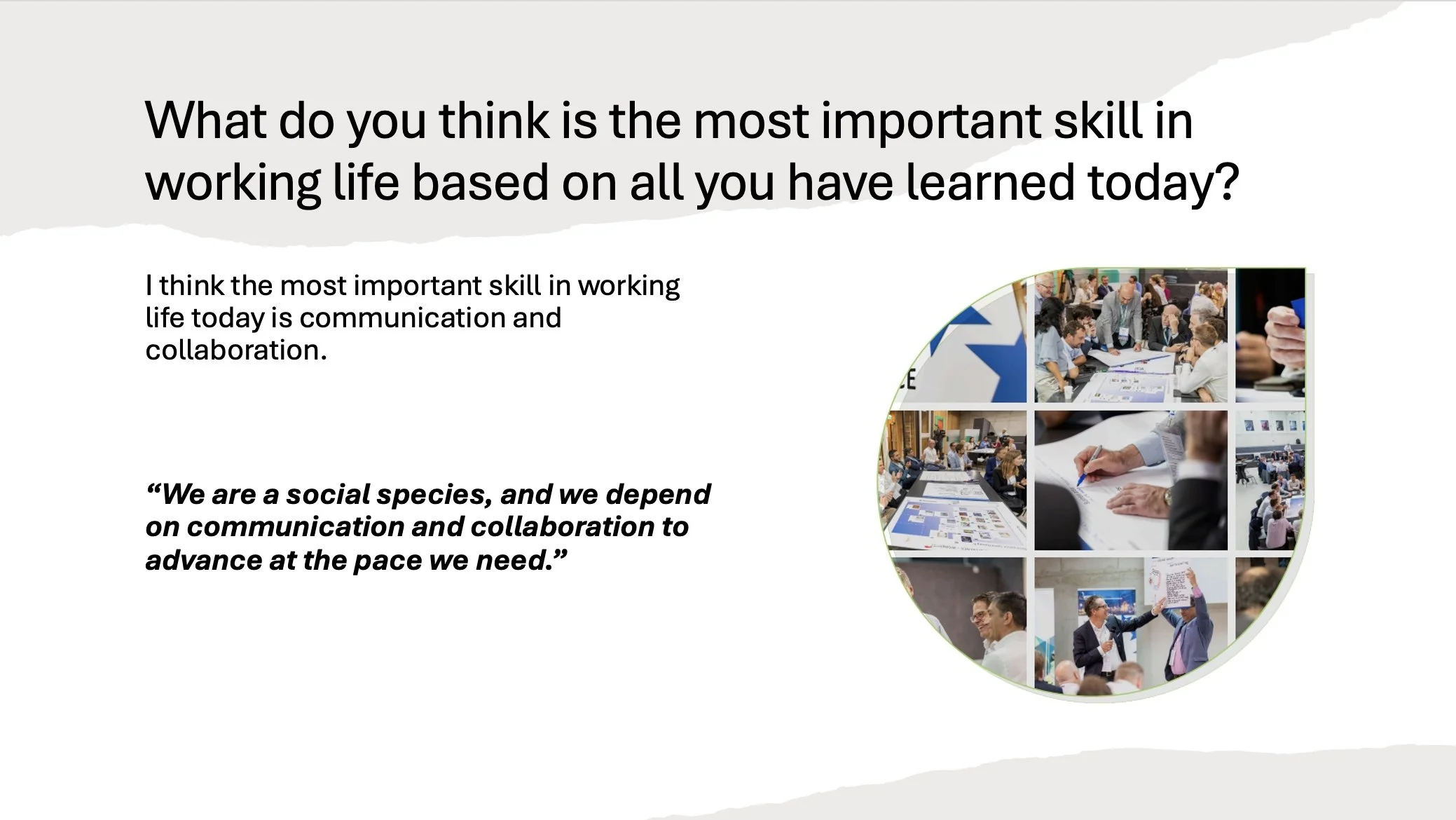How young people can help the planet [by embracing circular economy thinking]
Have you heard of the quote by Gro Harlem Brundtland?
“Sustainable Development is the development that meets the needs of the present without compromising the ability of future generations to meet their own needs”
Nowadays, there are the people who want to help, who incorporate the circular economy into their everyday lives, and then there are the people who - like Donald Trump - don’t believe in climate change. Also like Trump, many of those people - and some who believe in climate change - think they are doing this, or not, solely for future generations.
Yes, being good to the environment will have an impact for the generations ahead, but it’s also going to change your generation too.
Extract of presentation report for school (DCHS)
Year 8 work shadow student
No matter how little the difference, it’s still valid, right? Every little counts.
Young people can make a big difference when it comes to the environment, and this is for quite a few reasons; young people have a willingness to change - children are more likely to support changes like electric cars or using more sustainable products…nowadays more children have become powerful voices in standing up for the environment, then there is also the fact that they are the ones to grow up in what ever world we create.
Mind map synthesising conversations with Net Positive Solutions co-workers
Year 8 student
After interviewing some Net Positive Solutions colleagues and co-workers about their jobs and how they include circular economy into it I realised that it’s all very well to have a job that you love and finding a way to make it sustainable, in fact every one who can do that should, but not every one has jobs and not every one is old enough to have a job.
So what do you do then?
Well, you just have to find other ways to be sustainable. If you’re creative, learn to up cycle things, turn them into something you would use more. If you’re into gardening, use your food waste and turn it into compost. If you have a habit of using things once, and then throwing them away - re-use things, get out of your habit. If you like being active and spending time outside, go on litter picks. If you like being busy, participate in campaigns, or community programs. Buy more sustainable products, consume less (buy less), reduce your food waste, educate others, look for certifications in the things you buy e.g. fair trade, organic, Bcorp.
“If it can’t be reduced, reused, repaired, rebuilt, refurbished, refinished, resold, recycled or composted, then it should be restricted, designed or removed from production”




